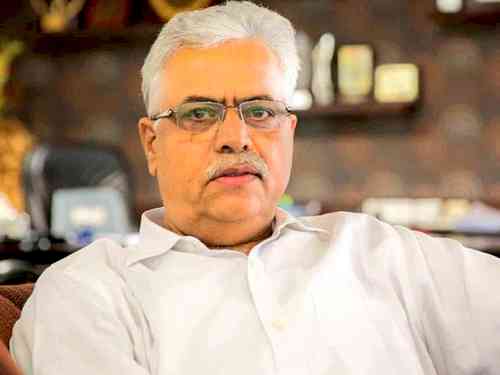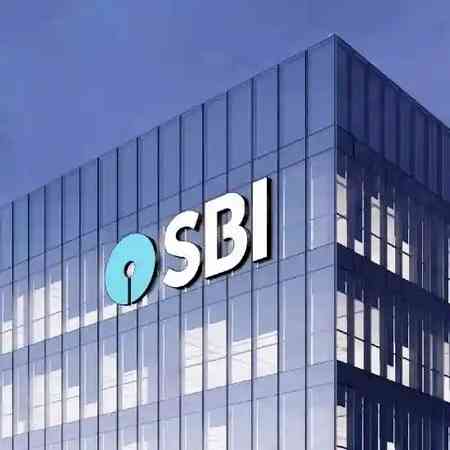Delhi court denies default bail to Supertech Chairman in PMLA case
A court has refused to grant default bail to Supertech Group Chairman R.K. Arora in connection with a case under the Prevention of Money Laundering Act (PMLA) registered by the Enforcement Directorate (ED).

New Delhi, Oct 15 (IANS) A court has refused to grant default bail to Supertech Group Chairman R.K. Arora in connection with a case under the Prevention of Money Laundering Act (PMLA) registered by the Enforcement Directorate (ED).
Arora's application sought bail on ground that the financial probe agency had filed an incomplete charge sheet against him.
He claimed that the ED had filed an incomplete charge sheet just to defeat his "statutory right" to get default bail in case the probe agency fails to file a charge sheet within the statutorily period granted by the law to complete the investigation from the arrest of an accused.
Additional Sessions Judge, Patiala House Courts, Devender Kumar Jangala, who had taken cognisance of the charge sheet against Arora on September 26, dismissed the application observing that the ED had completed the investigation against the accused.
The court noted that it had taken the cognisance of commission of alleged offence only after considering the sufficient material on record.
"The order passed by this court at the time of taking the cognisance itself implies that the investigation qua the accused persons mentioned in the complaint was complete.
"The cognisance has been taken considering the sufficiency of material on record. There can be no assumption from the perusal of material on record that the investigation is incomplete," the judge said.
The charge sheet is filed on the completion of the investigation but the ED's probe is still on in the present case, Arora's application claimed.
ED's Special Public Prosecutor N.K. Matta opposed the application saying that even though the investigation in the case was still ongoing, the probe with regard to Arora was complete.
On September 26, Jangala had also issued a production warrant for Arora's appearance on October 30.
Besides taking cognisance of the prosecution complaint, the judge had issued summons to all the accused individuals named in the charge sheet and firms.
Even the Delhi High Court had dismissed Arora’s petition challenging his arrest by the ED.
A single-judge bench of Justice Dinesh Kumar Sharma refused to accept Arora's claim of his arrest being arbitrary and illegal.
Arrested on June 27 after the ED re-attached properties worth Rs 40 crore belonging to him in this matter, Arora had said that he was arrested without being informed about the grounds of arrest.
The court, however, rejected his claim noting that the probe agency complied with the relevant provisions of law.
"In the present case, the grounds of arrest were duly given and notified to the petitioner and he endorsed the same in writing under his signature. The core issue is of being 'informed' and 'as soon as'. It if has been duly notified and brought to the notice at the time of arrest and further disclosed in detail in the remand application, it amounts be be duly informed and served," the court said, dismissing his petition.
Arora's argument was centered on alleged violations of his fundamental rights under Article 22(1) of the Constitution, claiming that he was arrested without being informed of the grounds of his arrest and denied the right to consult and be defended by a legal practitioner of his choice. However, the court had observed that there was no violation of Arora's fundamental rights, citing that there was no evidence to suggest that he was denied the right to consult and be defended by a legal practitioner.
Also, the court found no basis to conclude that the required "reason to believe" under Section 19(1) of the PMLA was not recorded in writing, thus dismissing the claim of illegal arrest.
Arora has argued that his arrest had adverse implications for nearly 17,000 home buyers and a Settlement-cum-Resolution Plan approved by the National Company Law Appellate Tribunal, which had also received Supreme Court approval.
The court, however, decided against granting interim bail in the current proceedings, deeming it "impractical" to send Arora to Mumbai in custody for meetings with financial creditors. The court had said that even for granting interim bail, the provisions of the PMLA would need to be satisfied. It did suggest that, if desired, the jail superintendent could arrange a video conferencing meeting for Arora from the jail in accordance with the law.
The probe agency had, on August 24, filed the charge sheet against Arora and eight others in the matter. The accused have been accused of defrauding at least 670 homebuyers of Rs 164 crore.
Matta had earlier apprised the court that the company and its directors had indulged in a criminal conspiracy to cheat people by collecting funds from prospective home buyers as advance against flats booked in real estate projects. He had said the firm failed to adhere to the agreed obligation of providing possession of the flats on time and ended up defrauding the general public.
The money laundering case stems from a bunch of FIRs registered by the police in Delhi, Haryana, and Uttar Pradesh. It is alleged that money collected through real estate business was invested in several firms through money laundering, as the funds from the home buyers were later transferred to several accounts of firms involved in other businesses. Arora couldn't provide satisfactory answers, which led to his arrest.
Several FIRs have been filed against Arora and Supertech. They also took loans from banks, and their accounts reportedly turned into non-performing assets.


 IANS
IANS 








